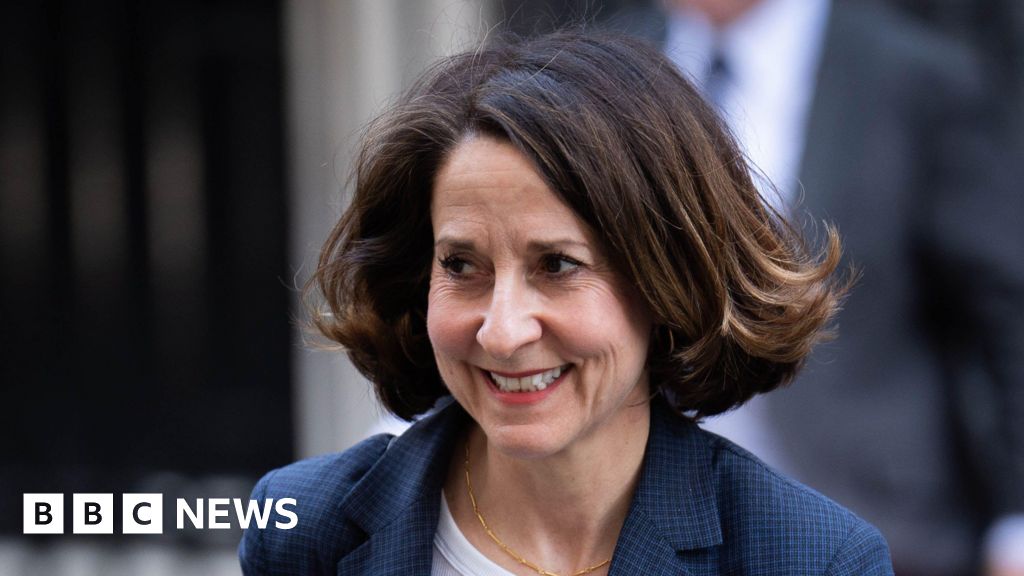Unlock the Editor’s Digest for free
Roula Khalaf, Editor of the FT, selects her favourite stories in this weekly newsletter.
The EU should undertake a major overhaul of its €387bn Common Agricultural Policy to subsidise farmers based on their income rather than the size of their farms, according to a report commissioned by Brussels in response to violent farmers’ protests.
The recommendations were presented to European Commission president Ursula von der Leyen on Wednesday. They follow consultations among farmers, NGOs, consumer and food retailers that culminated in three marathon day-and-night negotiating sessions last week, underlining deeply divided opinions over the future of farming.
“Business as usual, be it economic, social or environmental, is not an option,” said the report from the so-called Strategic Dialogues on the Future of EU Agriculture. “Bold and swift action at all levels is needed” to tackle the “multiple crises” affecting farmers, including increased impacts from extreme weather such as drought, from inflation and from low-cost global competitors.
Von der Leyen told journalists that farmers had previously felt that they were being “micro-controlled”. She would “study carefully the recommendations of the report” and it would feed into a “vision” for agriculture and food to be laid out in the first 100 days of the new European Commission, which should start sitting later this year.
The recommendations of the report are not binding. Von der Leyen, however, singled out the idea of an advisory board to guide agricultural policy as having particular potential.
Among other proposals of the report are schemes to encourage consumers to cut their meat intake including through tax incentives and labelling and to help farmers move away from livestock farming, including a controversial suggestion to introduce voluntary buyout schemes for farms in areas with high levels of intensive animal farming.
The most significant recommendation is a major overhaul of the EU’s CAP subsidy scheme, which was first launched in 1962 and consumes a third of the bloc’s multiannual budget.
Instead of allocating direct support to farmers according to the amount of land they own and linking that to mandatory environmental standards, the report recommends that subsidies should go to “the active farmers who need it most” based on their “economic viability”.
The dialogues were announced by von der Leyen as part of a pitch to farmers by her centre-right European People’s party ahead of EU elections in June, given that rural voters seemed to be turning to more fringe political groups.
The report was overseen by German academic Prof Peter Strohschneider, who chaired a similar consultation in Germany in 2021.
Strohschneider said of the CAP recommendation that “public money is not to be spent on those who do not need it” and defended the document’s suggestion that meat consumption should be reduced by comparing it to speed limits that also curbed individual freedoms.
Christel Delberghe, director-general of the retail trade body EuroCommerce who was involved in drafting the report, said: “The real main feature is a commitment towards change and towards the [climate] transition. There is a joint agreement by everyone — by farmers, retailers, consumers — that things need to change. That on its own is a paradigm shift.”
Farming and environmental campaign groups were also vocal in their support of the report.
Marco Contiero, EU agricultural policy director at Greenpeace, said that the process had involved “serious, robust” debate based on scientific evidence. “This is clearly better than a set of populist statements that are not based on reality.”
The current environmental standards within the CAP were temporarily jettisoned by the commission after farmers’ protests throughout the spring of this year that saw tyres burnt, statues toppled outside the European parliament and manure spread over the streets of EU capitals.
Green campaign groups including ClientEarth and Birdlife made a complaint to the European Ombudsman in July, claiming that the removal of environmental standards had been done through a “closed doors” process and was “unprecedented and undemocratic”.
The report proposes that farmers receive incentives within the CAP to green their practices, as well as from a “Just Transition Fund” that is outside the CAP budget and is dedicated to longer-term changes such as converting farms to “regenerative” or organic methods. There should also be a loan package of up to €3bn from the European Investment Bank that prioritises young farmers.
Food production and distribution are responsible for between 21 and 37 per cent of greenhouse gas emissions depending on the criteria measured, according to the Intergovernmental Panel on Climate Change. Over half of those emissions come from livestock farming.
Despite this, agriculture remains one of the last sectors in the EU without an overarching target for reducing greenhouse gas emissions, as the bloc tries to overhaul its economy in an effort to reach net zero emissions by 2050.
Credit: Source link











